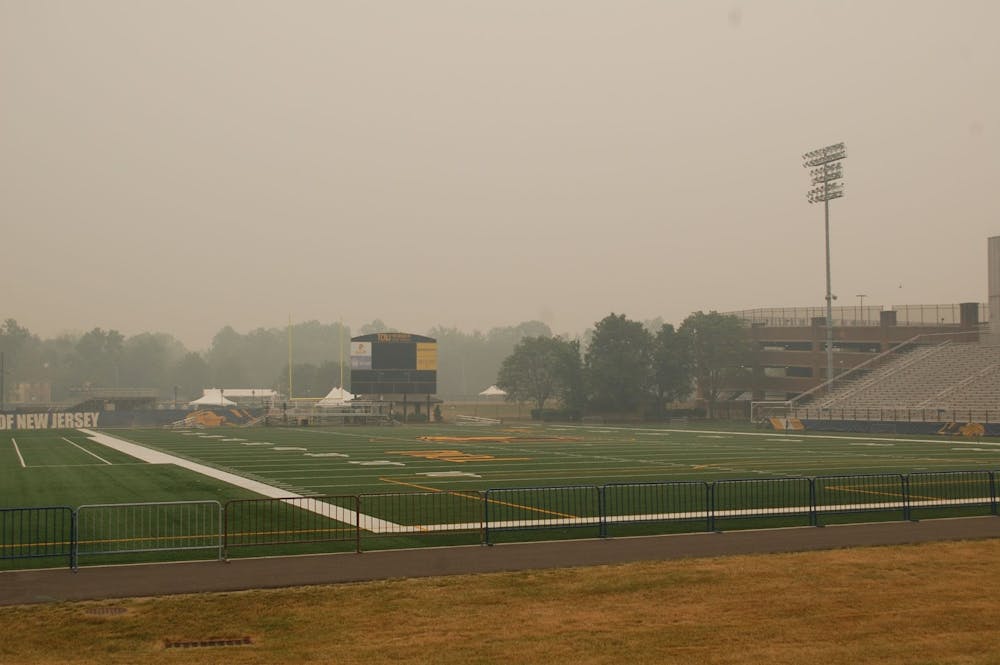By Victoria Gladstone
Managing Editor
Plumes of thick smoke created a hazy day on June 7 in New Jersey as Canadian wildfires rage in the north.
During this exceptionally hot and dry season, Canada has become a hotspot for wildfires just at the beginning of the summer. Their wildfire season started in May and will not end until October. This destructive natural disaster event happening in the northernmost points of North America is heavily affecting several states in America including New York and New Jersey.
Normal air quality levels should be between 1-50 air quality index (AQI). This week New York City was listed as the city with the worst air quality of the day as it reached a staggering 405 out of 500 AQI.
In Ewing, NJ where the College is located, the AQI reached 394 which is a level deemed hazardous for everyone.
Senior Director of Sustainability and Energy Management Paul Romano told The Signal about some of the procedures the College has in place for when something like this happens.
“When we encounter poor air quality we reduce the volume of outside air that enters our buildings to the minimal levels permissible by our building codes,” said Romano. “We also operate our heating, cooling, and ventilation systems continuously so what filtration is available will filter the indoor air more frequently.”
The College’s plan for a more sustainable campus has gone into effect to reduce its carbon footprint. The solar panels placed in parking lots four and five have been turned on and will greatly reduce the amount of electricity the College will need to purchase from an outside source. Romano noted that there will be electric car charging stations placed on campus soon as well.
“The college is presently engaged in several initiatives in addition to the solar panels which are to date the most visible evidence of our efforts,” said Romano. “These efforts span from reducing the emissions at our powerhouse, that are already significantly lower than if we were to purchase our power from a public utility, to a comprehensive effort to evaluate energy efficiency opportunities throughout the entire campus with the expectation we will reduce our consumption by more than twenty percent.”
For many students living in the Ewing area or attending programs on campus, the smoky conditions disrupted their day.
Sophomore physics major Mikayla Angelini lives in Ewing and noted her commute home from work was around the time the smoke levels were at their highest.
“The sky was very dark around 3 p.m. Wednesday and it smelled like fire,” said Angelini. “I was driving home from work on [Highway] 295 and it was very hard to breathe.”
Senior Dalia Lorenz who is a student in the Career and Community Studies program was let out early from her class by her professor due to smoke entering the building.
“The smoke only affected us in the classroom setting,” said Lorenz. “I masked up [because] I was starting to cough. We were worried about people with asthma.”
The New Jersey Department of Health warns the citizens of New Jersey that only N95 masks can protect someone from the smaller particles of smoke in the air, citing the extremely poor air quality in the tri-state area. Staying inside is the best option for those who may be sensitive to the smoke.
While the smoke has since dissipated, this unusual event has sparked discussion surrounding climate change. If wildfires continue to burn in Canada, smoky conditions like this may continue to plague the northeastern parts of America.







